How to Help Special Needs Kids Cope with Social Anxiety
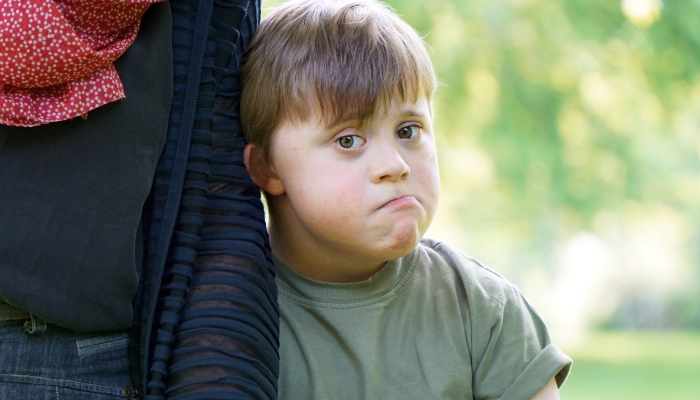
- Social anxiety is a common issue for children with special needs.
- Underlying fears often cause social anxiety disorder in children.
- It’s important to remember that it might take time for your child to adjust to new social settings.
Watching your little one struggle socially is a difficult thing for many parents. You want your child to thrive, make friends, and feel included. Yet, when a social event arises, you notice your child retreats, becomes anxious, or even acts aggressive or oppositional.
It’s hard not to feel heartbroken and hopeless watching your child struggle to cope.
Thankfully, there are plenty of research-backed strategies and tools to help your child.
Social anxiety is a common issue for children with special needs. As a parent, understanding social anxiety is key. When you understand what your child is experiencing, you are better equipped to help them.
With the right strategies, your child will develop coping skills and confidence. There are many ways to ease social anxiety in children. We’ve developed this guide to help you set your child up for success!
How to Recognize if Your Special Needs Child Has Social Anxiety
There are many ways social anxiety disorder can present itself. Some kids with social anxiety show physical symptoms along with emotional symptoms.
Your child might exhibit only one or two of these, while others might exhibit all. These behaviors and symptoms include:
Expressing or showing fear of:
- Interacting with new people
- Going to school
- Making eye contact
- Going to social events with a large crowd
- Eating in front of other people
- Using the bathroom in public places
- Ordering at a restaurant or talking to a cashier
Physical symptoms:
- Blushing
- Headache
- Rapid heartbeat
- Shaking
- Sweating
- Nausea
- Dizziness
- Angry outbursts
- Opposition
If you’ve never talked to your child’s pediatrician about these behaviors, that’s a good place to start. They can distinguish between social anxiety disorder, separation anxiety, general anxiety disorder, or panic disorder.
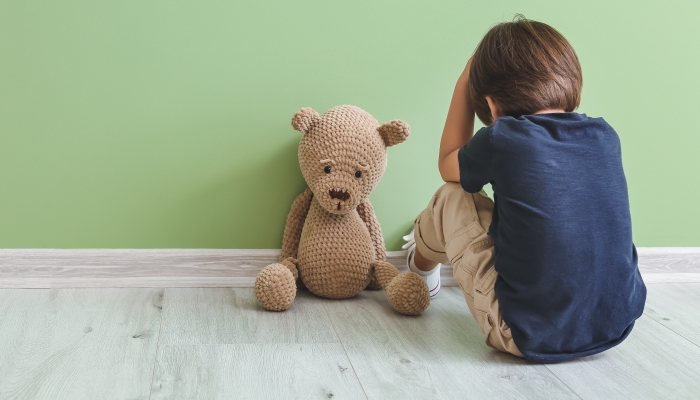
What Causes Social Anxiety in Children?
Underlying fears often cause social anxiety disorder in children. In special needs kids, fears might stem from having a learning disability or delayed social skills. The inability to access social norms because of sensory impairments, such as blindness, might also increase fears.
It’s important to pay attention to your child’s specific needs and concerns to see what triggers exist.
Here are some common fears that can cause social phobia in children:
- Fear of embarrassing themselves
- Fear of being judged
- Worry about becoming the center of attention
- Worry about not being able to take part in playtime because of impairments
- Fear of looking different than everyone else
Are Kids with Special Needs More Likely to Experience Social Anxiety?
Yes. Special needs children are more likely to experience social anxiety disorder for several reasons.
Special needs children are full of wonder and exploration. They notice the world around them in their own beautiful way. However, they might also hold feelings of inadequacy or not fitting in.
Learning disabilities, to be specific, have a high likelihood of existing alongside social anxiety disorders. A 2009 Study on Social Adjustment Problems Associated with Learning Disabilities found, “Individuals who have learning disabilities may be less observant in their social environment, may misinterpret the social behavior of others at times, and may not learn as easily from experiences or social ‘cues’ as their friends.”
Keep in mind that sensory differences or behavior challenges might be large obstacles for your child. For example, little ones who have a fear of loud noises might show signs of social phobia at events like birthday parties or festivals.
How to Help Your Special Needs Child Cope with Social Anxiety
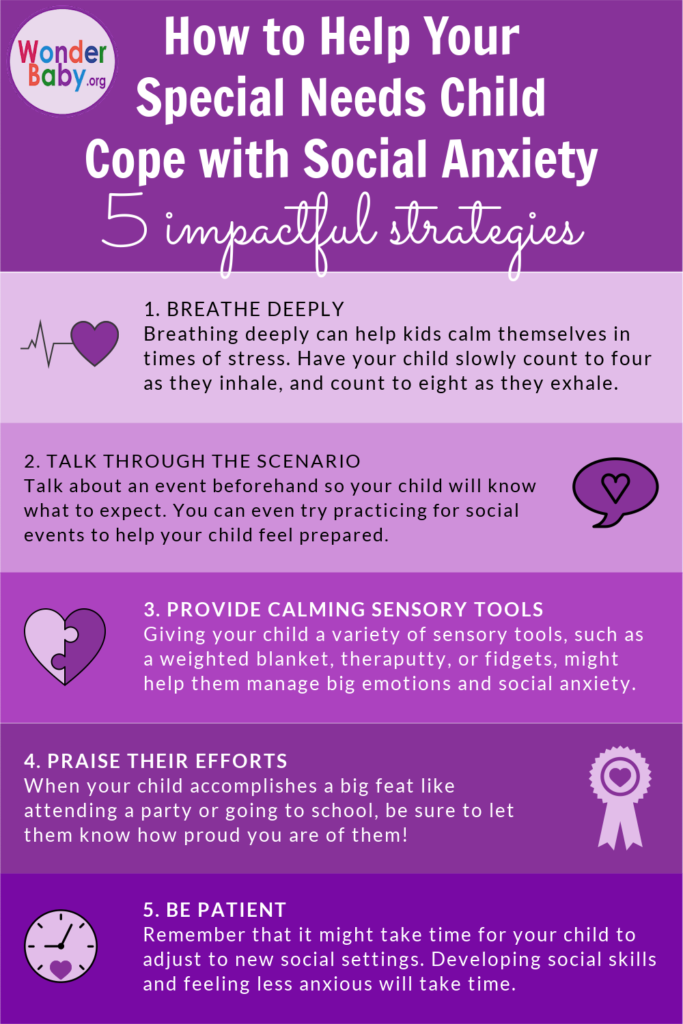
There are many strategies to help children with social anxiety. Here are 5 impactful strategies you can start using today:
- Have your child breathe deeply.
Teaching your child how to focus on their breath and to breathe deeply can help them to calm themselves in times of stress. It is important to model the behavior for your child and to be patient as they learn the new skill. Start by having your child sit in a comfortable position and focus on their breath. Then, slowly count to four as you inhale, and count to eight as you exhale.
Encourage your child to do the same, and to keep focusing on their breath even if their mind wanders. With practice, your child will be able to use this skill when they are feeling stressed, and they will be better able to cope with anxiety.
- Talk through the scenario.
Sometimes social situations cause anxiety for special needs kids because they don’t know what to expect or lack the social skills needed for the event. Talking through the scenario beforehand will let them know what to expect. You can even try practicing for social events to help your child feel prepared.
- Provide calming sensory tools.
There are many sensory toys and tools that can positively impact a child’s ability to cope with big emotions and anxiety. Giving your child a variety of these sensory tools might help them manage social anxiety disorder.
Some of these include:
- Weighted blankets
- Therapy pets
- Theraputty
- Calming activities like coloring or building
Parents of school-aged kids should ask if any of these tools are available in class.
- Praise their efforts.
When your child accomplishes a big feat like attending a party or going to school, be sure to let them know how proud you are of them. This is also a good time to ask how it went, confirm their feelings, and encourage them to try it again.
- Be patient.
It’s important to remember that it might take time for your child to adjust to new social settings. This is especially true in the educational setting. If you notice your little student developing social anxiety when starting school, know that is normal.
When your child begins school, let the school staff and teachers know they will need extra time to adjust to transitions. Many schools are experienced in helping students overcome their social anxiety disorder.
If you notice repeated episodes of anxiety in your young student, be patient. Developing the necessary social skills to feel less anxious around their peers will take time.
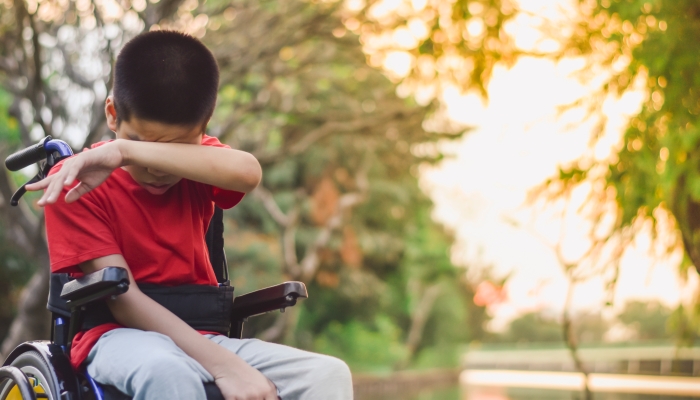
How Not to React to Social Anxiety in Children
When helping your child deal with fear or severe anxiety, be sure to avoid reacting in negative ways.
Reacting to your child out of emotions might create major problems rather than relieve fears. This includes:
- Yelling
- Hurrying your child along
- Downplaying their feelings
- Shaming them for reacting that way
FAQs
Is Separation Anxiety the Same as Social Anxiety?
The two are similar and often exist together, but have slight differences. Separation anxiety is a fear of being away from guardians. For example, separation anxiety in toddlers at night might cause them to cry when mom or dad leaves the room.
Social anxiety appears in social situations even if guardians are around.
Is Social Anxiety a Form of Autism?
No. Social anxiety and autism are two separate diagnoses. Social anxiety disorder is an intense fear of being watched or judged by others. Autism is a developmental disability caused by differences in the brain.
When Should We Seek Professional Help?
Students and children who have severe anxiety disorders that interfere with daily activity should see a doctor for treatment and support. When needed, doctors can prescribe medicines using beta-blockers to relieve anxiety.
An early diagnosis can help prevent significant issues down the road.
Seeing a professional might also help ensure there isn’t another underlying trauma causing anxiety. If this is the case, your doctor will be able to provide support for comforting a grieving child.
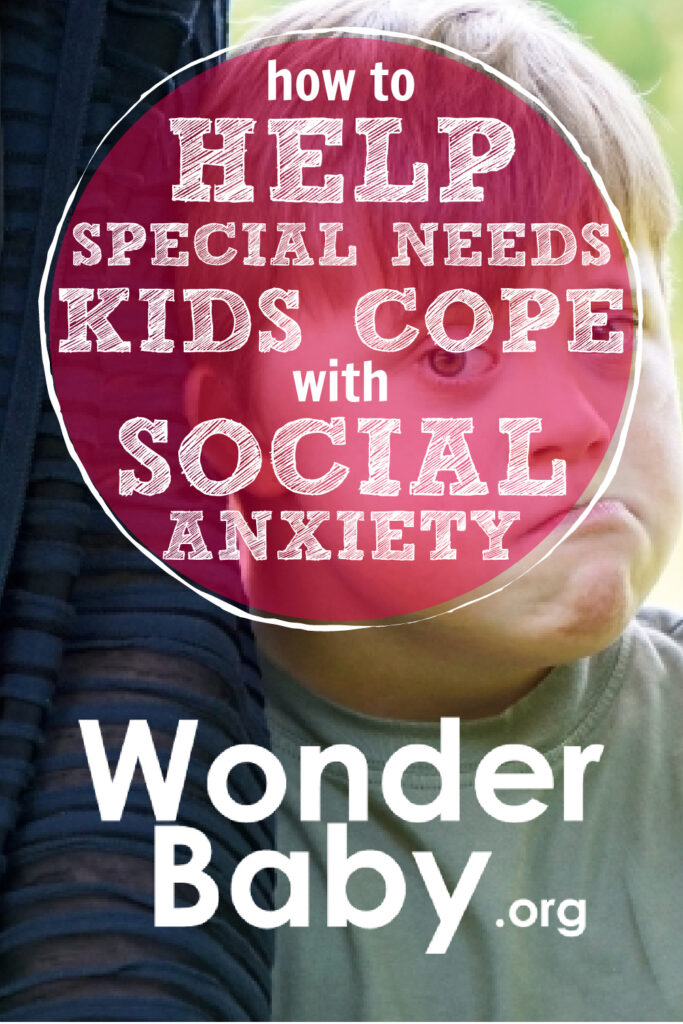
Related Posts

Eye Conditions and Syndromes, Visual Impairment
Neuralink Announces Plans to Restore Sight to the Blind with Brain Chip
Elon Musk’s company Neuralink has announced plans to begin human trials of its new “Blindsight” brain chip by the end of 2025.

Special Needs
5 Spring Cleaning Tips for Families of Children with Disabilities
Spring cleaning is an opportunity to create a more accessible, organized, and supportive space for your child with disabilities. Declutter, deep clean, and refresh!

Visual Impairment
The Gift of Understanding: How a Young Child Helps His Blind Father Navigate Life
When a parent is blind, it’s natural for people to wonder how their sighted child will adapt. Will they struggle to understand their parent’s needs? Will they feel burdened by...